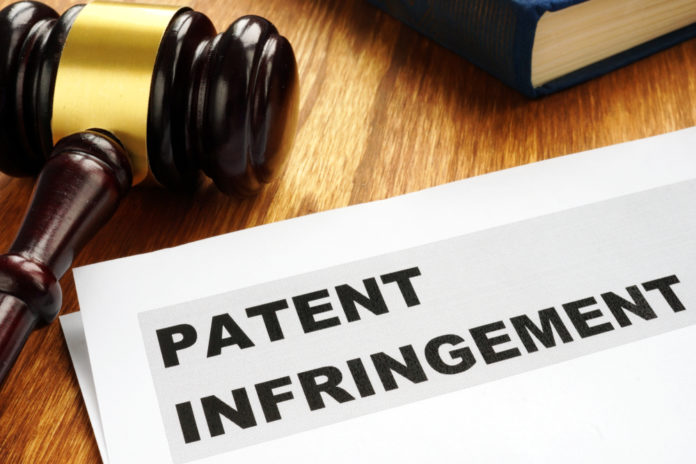Contractor’s motion for attorneys’ fees in a patent infringement case is granted. The plaintiff sued the government for infringement. The contractor who provided the government with the allegedly infringing product joined the suit as a noticed nonparty. After the contractor threatened the plaintiff with the Rule 11 sanctions, the infringement claims were withdrawn. The court found that the contractor was entitled to attorneys fees. The plaintiff’s infringement lacked merit; even a cursory visual inspection of the contractor’s product would have revealed there was no patent violation. Additionally, although the plaintiff voluntarily dismissed its claims, the court found that the contractor, whose actions effectuated the dismissal, was the prevailing party.
Giesecke & Devrient GbmH sued the United States, alleging that the government had infringed on the company’s patent for a Contactless Data Carrier, which are identification documents, like passports and identity cards, that have a built-in microchip and radio frequency labels. Giesecke alleged that a several U.S. identification documents—passports, Permanent Resident Cards—that meet the requirements of the International Civil Aviation Organization (ICAO) violated the patent.
At the government’s request, interested nonparties were notified of the suit. One of these nonparties was HID Global Corp., which provided the government with Permanent Resident Cards and Global Entry Cards.
HID moved to dismiss all of Giesecke’s card-based claims, alleging that the complaint failed to allege any facts that supported infringement. As noted, Giesecke alleged that the government identification documents that comply with the ICAO requirements infringed on the company’s patent. To comply with the ICAO, and identification document must (1) carry a symbol called a Chip Inside Symbol, and (2) must have 256,000 bits of storage. Here, HID contended, even a cursory view of its identification cards would have shown that they lacked the Chip Inside Symbol and that they had only 768 bits of storage.
Before briefing on the motion to dismiss was completed, HID’s counsel sent a letter to Giesecke’s counsel, stating Giesecke’s suit was baseless, and that HID planned to move for Rule 11 sanctions. In response to the letter, Giesecke amended its complaint, withdrawing its card-based claims. The court deemed the card based dismissed without prejudice. HID moved for an award of attorneys fees under 35 U.S.C. § 285, which, in exceptional circumstances, allows a court to award fees to the prevailing party in a patent case.
The court first analyzed whether the Giesecke’s case was exceptional. In making an exceptionality determination, the court considers the frivolousness, motivation, and objective unreasonableness of the party’s allegations.
Applying these factors, the court found that the case was exceptional. The court noted that Giesecke’s ICAO-based theory should have been immediately discarded. A basic visual inspection of the of HID’s products would have revealed that they did not have the Chip Inside Symbol or the storage capacity of an ICAO card. What’s more, despite alleging that it conducted a pre-filing investigation of the infringement claims, Giesecke did not provide any objective evidence—memos, declarations—detailing or explaining the investigation.
The court also found that HID was the prevailing party. Giesecke argued that HID did not prevail because Giesecke voluntarily dismissed the card-based claims without prejudice. But the court found that this argument elevated form over substance. The only reason the claims were dismissed without prejudice was because the court did not actually adjudicate them. This did not mean that the claims had merit. And, in any event, despite the dismissal without prejudice, Giesecke’s counsel had verbally avowed to the court that it did not plan to reassert the card-based claims. The court reasoned that a defendant is a prevailing party whenever the plaintiff’s claim is rebuffed, irrespective of the court’s decision. Here, the dismissal of Giesecke’s card-based claims effected a material change in the legal relationship between Giesecke and HID. HID rebuffed the claim and thus prevailed.
Giesecke is represented by Jay F. Utley, Brian C. McCormack, W. Bart Rankin, and D. Yoon Chae of Baker & McKenzie LLP. Notice nonparty HID is represented by Lionel M. Lavenue of Finnegan, Henderson, Farabow, Garrett & Dunner LLP.




